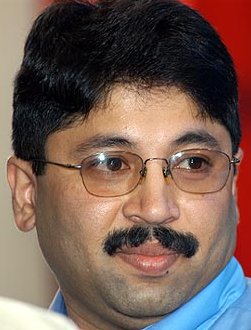
New Delhi, November 8: The Central Bureau of Investigation on Wednesday informed the Supreme Court that a politically and economically powerful person in Malaysia was stalling the probe into the foreign angle in the Aircel-Maxis case involving the former Union Minister, Dayanidhi Maran, and others.
Senior counsel K.K. Venugopal, appearing for the CBI and the Enforcement Directorate, told a Bench of Justices G.S. Singhvi and K.S. Radhakrishnan that the agency had completed the domestic investigation. Letters Rogatory had been sent to Malaysia and Mauritius to establish a link between the investments (in Sun Direct) made by the Maxis group and grant of licence to Aircel.
‘Prima facie nexus’
Even as counsel read out salient features of the latest status report on the probe, Justice Singhvi orally observed: “Allegations prima facie indicate a nexus. Six applications were filed for grant of spectrum but there was a deliberate delay in taking the decision. When the party sold [Aircel] licence was granted.”
Mr. Venugopal said: “We have to establish that Malaysia-based Maxis was the holding company of the Mauritius company through which investments were made. For establishing a nexus we have to know the source of funds and the link has to be established. Ten officials of FIPB [Foreign Investment Promotion Board] have also been examined.”
When Justice Radhakrishnan asked, “Do you feel any of the persons named in the FIR in the Maxis-Aircel case is delaying the investigation,” counsel said, “A politically and economically powerful person in Malaysia is delaying the probe. We have sent a Letter Rogatory and clarifications had also been given, but a further clarification had been sought from the CBI and they wanted to know whether there is any evidence, which is uncalled-for.”
He said the Mauritius government was extending full cooperation and the delay was on the part of Malaysia in giving information. To a question from the Bench, he said Malaysia was bound by the Mutual Legal Assistance Treaty, yet there was delay in its furnishing the information.
According to the First Information Report registered by the CBI last year, Sivasankaran (who had originally sought spectrum licence) was forced to sell Aircel. In March 2006, the Maxis group owned by Malaysian business tycoon T. Ananda Krishnan bought 74 per cent stake in Aircel. The company got FIPB approval in May 2006. In November 2006, the Department of Telecommunications issued to Aircel 14 Letters of Intent, all of which were converted into licences in December 2006. Within three months of this development, Mr. Maran’s family owned business (Sun Direct) received substantial investment from the Maxis Group (Aircel), which took 20 per cent equity. The FIPB approved this investment on March 2 and 19, 2007. The Maxis group invested a total of Rs 599.01 crore in Sun Direct between December 2007 and December 2009.
Arguments will continue on Thursday.






Comments
Add new comment